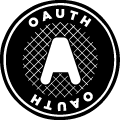 JSON Object Signing and Encryption (JOSE) -17 and JSON Web Token (JWT) -12 drafts have been published with editorial changes that reduce duplicated text between the JOSE specs. Also, the “
JSON Object Signing and Encryption (JOSE) -17 and JSON Web Token (JWT) -12 drafts have been published with editorial changes that reduce duplicated text between the JOSE specs. Also, the “typ” and “cty” header parameters were revised to always refer to media type values. The text about which serializations are mandatory to implement was updated. Finally, thanks to Matt Miller for supplying an encryption example using PBES2.
See the Document History appendices for more details on the changes made and issues addressed.
The drafts are available at:
- http://tools.ietf.org/html/draft-ietf-jose-json-web-signature-17
- http://tools.ietf.org/html/draft-ietf-jose-json-web-encryption-17
- http://tools.ietf.org/html/draft-ietf-jose-json-web-key-17
- http://tools.ietf.org/html/draft-ietf-jose-json-web-algorithms-17
- http://tools.ietf.org/html/draft-ietf-oauth-json-web-token-12
HTML formatted versions are also available at:
- https://self-issued.info/docs/draft-ietf-jose-json-web-signature-17.html
- https://self-issued.info/docs/draft-ietf-jose-json-web-encryption-17.html
- https://self-issued.info/docs/draft-ietf-jose-json-web-key-17.html
- https://self-issued.info/docs/draft-ietf-jose-json-web-algorithms-17.html
- https://self-issued.info/docs/draft-ietf-oauth-json-web-token-12.html






